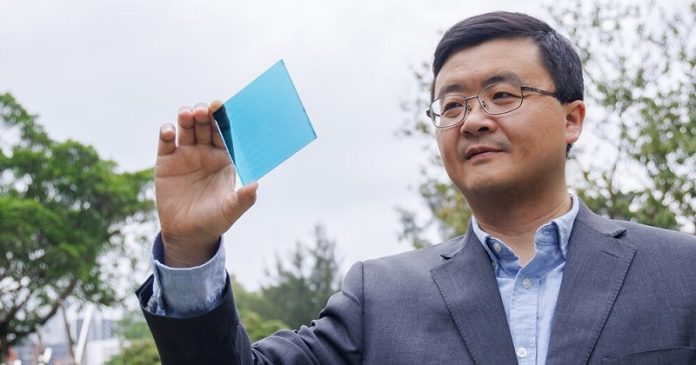
Scientists at The Hong Kong Polytechnic University (PolyU) have broken a world record for the efficiency of a particular type of solar cell.
This is a big deal because it could make solar energy more powerful and widely used.
Solar cells are used in solar panels to convert sunlight into electricity. One measure of how well they do this is called power-conversion efficiency (PCE).
A higher PCE means more of the sunlight that hits the solar panel gets turned into usable energy.
The researchers at PolyU have managed to achieve a PCE of 19.31% with a kind of solar cell called an organic solar cell (OSC). This is a record-breaking achievement for this type of solar cell.
The team, led by Prof. Li Gang, invented a special technique that makes the OSCs more efficient and stable.
They used a substance called 1,3,5-trichlorobenzene to change the way the OSCs crystallize. This helps the cells work better by allowing the molecules to stack up more neatly and avoid energy loss.
Traditionally, one of the big problems with OSCs is something called non-radiative recombination. This is a fancy way of saying that some of the energy from the sunlight gets wasted as heat instead of turning into electricity.
By using their new technique, the team has managed to reduce this energy waste, which means the solar cells are more efficient overall.
The findings of this exciting research are detailed in a study published in the journal Nature Communications. The work done by the team could have major implications for the future of solar energy.
OSCs have a lot of potential because they’re cheaper than traditional solar cells and they can be flexible, transparent, and lightweight. But until now, their efficiency has been a problem.
Professor Li explained that previous methods of improving the efficiency of OSCs had some issues that resulted in more energy waste.
But after two years of work, the team came up with this new method that not only improves efficiency but also reduces energy waste.
This research could open up lots of possibilities for how we use solar power. Imagine portable electronics powered by the sun or solar panels integrated into the windows of buildings.
Prof. Li believes these could become a reality if they can increase the PCE of OSCs to over 20% while maintaining their unique benefits like flexibility and light weight.
Prof. Li, who’s been recognized for his major contributions to solar cell research since 2005, said the study shows their new method can achieve a very low energy waste of 0.168 eV in an OSC with a PCE of over 19%.
He said this is very encouraging for their ongoing research and could speed up the use of solar energy in the future.
Source: Hong Kong Polytechnic University.



